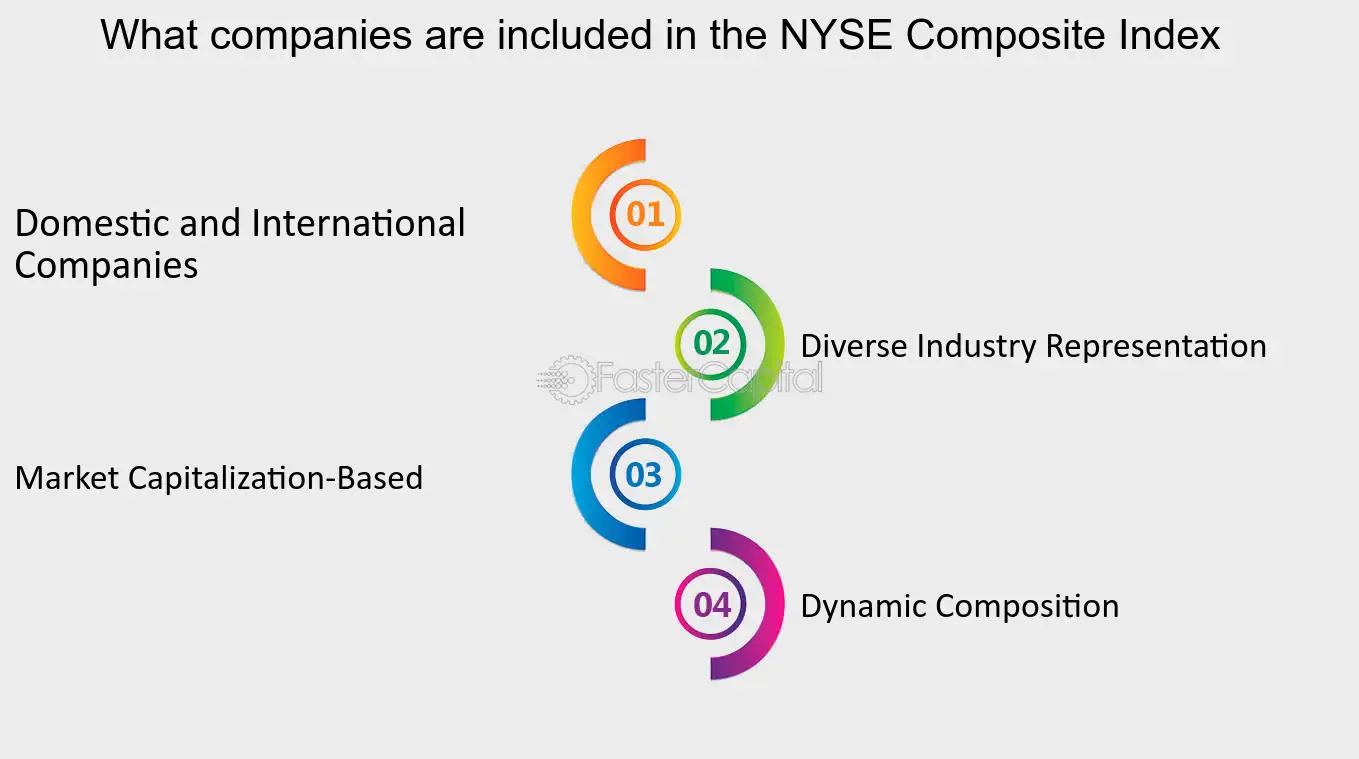An Overview of the NYSE Composite Index

The NYSE Composite Index is a market capitalization-weighted index that includes all common stocks listed on the New York Stock Exchange (NYSE). It is one of the most widely followed stock market indices and provides a comprehensive view of the performance of the NYSE as a whole.
The index is designed to represent the overall market trend and is considered a benchmark for the performance of the US stock market. It includes stocks from various sectors and industries, making it a diversified index that reflects the overall health of the economy.
Calculation and Components

The NYSE Composite Index is calculated using a formula that takes into account the total market value of all the stocks included in the index. The market value of each stock is determined by multiplying its price by the number of shares outstanding.
The index is composed of more than 2,000 stocks, including large-cap, mid-cap, and small-cap stocks. The components of the index are reviewed periodically to ensure that they accurately represent the market and to reflect changes in the stock market landscape.
Significance and Use
The NYSE Composite Index is widely used by investors, traders, and financial professionals as a tool to analyze the overall market performance and make investment decisions. It provides a broad perspective on the market and can be used to gauge the strength or weakness of the stock market as a whole.
Investors can use the index to track the performance of their portfolios and compare it to the overall market. It can also be used as a benchmark to evaluate the performance of mutual funds, exchange-traded funds (ETFs), and other investment vehicles.
Traders can use the index to identify trends and patterns in the market and make informed trading decisions. It can help them determine whether the market is bullish or bearish and identify potential buying or selling opportunities.
Financial professionals, such as portfolio managers and analysts, use the index to assess the overall market conditions and develop investment strategies. They can analyze the performance of different sectors and industries to identify potential investment opportunities or risks.
Utilizing the NYSE Composite Index for Investment Strategies
1. Diversification
One of the key benefits of utilizing the NYSE Composite Index is its ability to provide diversification. The index consists of a wide range of companies from various sectors, which helps to spread the risk across different industries. By investing in the index, investors can gain exposure to a broad range of stocks and reduce the impact of individual company performance on their portfolio.
2. Benchmarking
The NYSE Composite Index can also be used as a benchmark to evaluate the performance of an investment portfolio. By comparing the returns of a portfolio to the index, investors can assess how well their investments are performing relative to the overall market. This can help identify areas of strength and weakness in the portfolio and guide future investment decisions.
3. Sector Rotation
The NYSE Composite Index is composed of companies from different sectors, including technology, finance, healthcare, and more. By monitoring the performance of individual sectors within the index, investors can identify trends and opportunities for sector rotation. This strategy involves shifting investments between sectors based on their relative strength and weakness, aiming to capitalize on the sectors that are expected to outperform in the future.
4. Index Funds
Investors can also utilize the NYSE Composite Index through index funds. These funds are designed to replicate the performance of the index by holding the same stocks in the same proportions. By investing in an index fund, investors can gain exposure to the entire index without having to buy each individual stock. This provides a cost-effective and convenient way to invest in the NYSE Composite Index.

Emily Bibb simplifies finance through bestselling books and articles, bridging complex concepts for everyday understanding. Engaging audiences via social media, she shares insights for financial success. Active in seminars and philanthropy, Bibb aims to create a more financially informed society, driven by her passion for empowering others.
